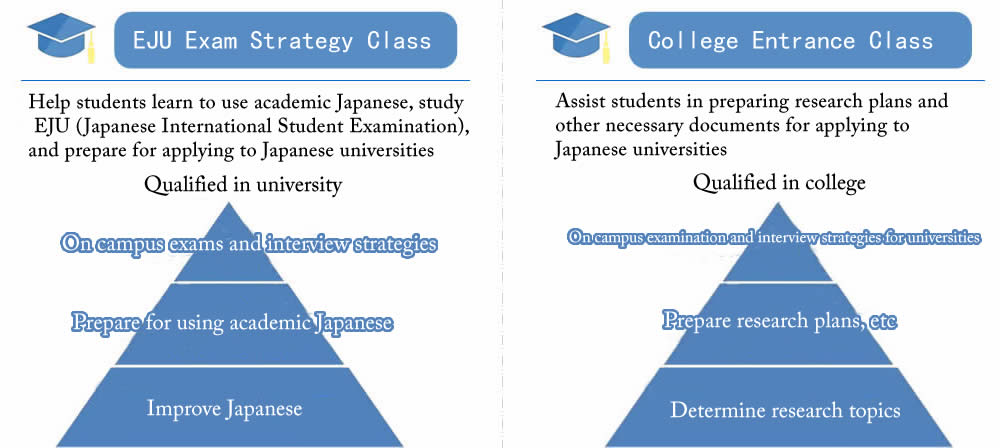Curriculum designed for international students with the goal of further education
▶ Determine the homeroom teacher and the person in charge of further education guidance, and set the time for further education guidance
▶ Individual conversations to determine goals
▶ The content of the reason letter and research plan for the coaching volunteer
▶ Simulated interview, providing guidance on problem-solving, tone, clothing, attitude, and etiquette
▶ Mastering the essential skills of "reading, writing, speaking, and listening" in Japanese universities and graduate schools, and learning the practical use of Japanese in daily life in Japan

Advantages of Studying in Japan
1. Developed economy and finance: Japan is the world's third largest economy, second only to China and the United States. Highly developed industry is the main pillar of Japan's national economy.
2. Sound welfare system: Japan implements a national health insurance system, where international students can enjoy the same national health insurance as Japanese students after paying a certain amount of insurance benefits.
3. Diplomas have high value and international certification: Japan's education and degrees are widely recognized worldwide, especially in developed countries such as the United States, which most recognize Japan's education and graduation certificates.
4. The employment prospects are broad: Japan's economy is developed and requires a large number of professional talents. Currently, a large number of highly educated Chinese students are being recruited to work in large multinational corporations in Japan. At the same time, Japan is also the best way to transfer to countries such as the United States for education.
5. There are many famous universities and opportunities for further research: Japan has a high level of education, with a total of 705 universities in the country, including Tokyo University, Waseda University, and Keio University, which are even more famous in the world. Japan's advanced science and technology, as well as its developed socio-economic situation, provide excellent opportunities for international students to further their studies.
6. Strict semester setting: In Japan, the new academic year generally starts in April and ends in March of the following year. Divided into early and late stages, the entrance examination for academic departments is generally held 2-3 months before the start of the new academic year. The entrance examination for graduate schools is mostly held in September for science and engineering majors, and February for humanities majors. But even the formal admission exam held in September takes place in April of the following year.
7. A complete education system: Japan is a country with highly developed modern education. Japanese schools have a complete education system: 6 years of primary school, 3 years of junior high school, 3 years of high school, 4 years of university education, and 5 years of college (graduate school) education. 2 years of Master's program and 5 years of Doctoral program (including 2 years of pre monastic program and 3 years of post doctoral program).
8. Numerous scholarships: Japanese higher education institutions offer various scholarships, second only to the United States in terms of quantity. The research environment is good, and almost all fields from electronic engineering to international operations can be studied in Japan.